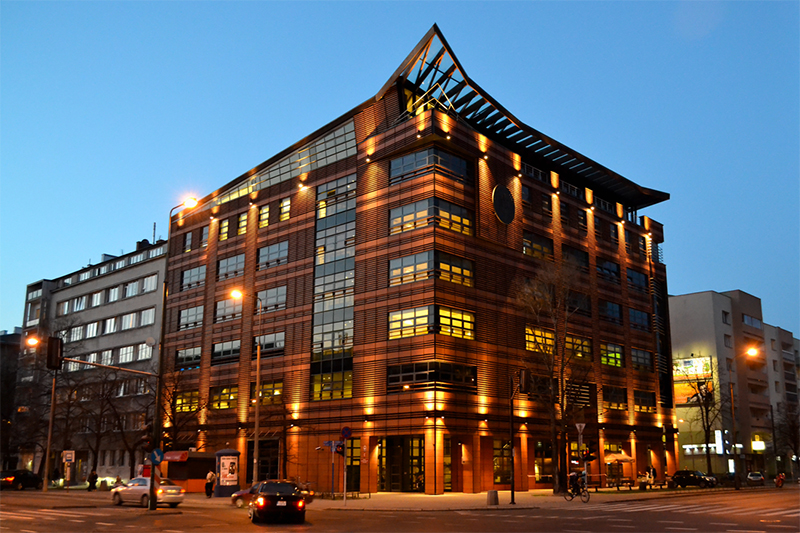We cordially invite you to the "Study in Poland" annual consultation meeting, which will be held on July 10 in Warsaw, from 10:30 a.m. to 3:30 p.m. The host of the meeting - organized every year by the CRASP Committee for International Cooperation and the Perspektywy Education Foundation - is the SGH Warsaw School of Economics.
What and where to study? This is a question that almost 300,000 young Poles ask themselves every year. Which university has not only interesting fields of study, but also the best staff, good contacts with businesses, and extensive foreign exchange? By publishing the Perspektywy University Ranking, we help high school graduates make the most important life decisions.
Under the honorary patronage of prof. Arkadiusz Mężyk, chairman of the Conference of Rectors of Academic Schools in Poland (KRASP).
It is the twelfth time that we are concluding the Interstudent competition, in which we award the best foreign students studying at Polish universities. We are looking - as every year - for ambitious people, good students, but most of all for active, committed people who build bridges between cultures. And every year, thanks to cooperation with universities, we find many excellent candidates. Although in the last two years this task has become more difficult, we have managed to show foreign students who, despite the fears and difficulties resulting from the epidemic, stayed in our country.
On April 26, as part of the conference "Foreign students in Poland 2021", an online gala was held, during which the best foreign students in Poland were awarded. This is the eleventh edition of the competition for the best foreign student in Poland "INTERSTUDENT 2021". It is organized by the Perspektywy Education Foundation as part of the "Study in Poland" program, carried out jointly with the Conference of Rectors of Academic Schools in Poland (KRASP). Despite the pandemic, this year the organizers received a record number of applications from universities all over Poland - 140. We present the profiles of the winners.
Dear international students,
The outbreak of the coronavirus epidemic made that you faced many challenges. Government authorities, educational institutions and programs supporting foreign students undertake a wide range of activities so that none of you will feel abandoned in this difficult time.
Professor Wojciech Maksymowicz, secretary of state at the Ministry of Science and Higher Education assured foreign students who remain in Poland during the pandemic that they can always count on our help.
CORONAVIRUS causes fever, cough, breathing difficulties.
It is spread by droplet transmission, i.e. when coughing, sneezing, but also by touching the eyes, nose and mouth with the hands.
There are 78 259 foreign students from 174 countries studying in Poland, over 5 516 more than a year ago (over 7,5% increase) in the academic year 2018/2019. Foreign students currently make up 6.37% of the total number of students in the country (eleven years ago the figure was only 0.71%, in the academic year 2017/2018 - 5.63%). The upward trend has been maintained since 2005, i.e. since the Conference of Rectors of Academic Schools in Poland (CRASP) and Perspektywy Education Foundation launched the long-term “Study in Poland” program.
On January 17, 2019 at Aula Kryształowa of the Warsaw University of Life Sciences, there was a prize ceremony for the winners of the competition for the best international student INTERSTUDENT 2019. The ceremony was part of the "Foreign Students in Poland 2019" conference.
There are 72 743 foreign students from 170 countries studying in Poland, over 6 950 more than a year ago (over 10% increase) in the academic year 2017/2018. Foreign students currently make up 5.63% of the total number of students in the country (ten years ago the figure was only 0.71%, in the academic year 2016/2017 - 4.88%). The upward trend has been maintained since 2005, i.e. since the Conference of Rectors of Academic Schools in Poland (CRASP) and Perspektywy Education Foundation launched the long-term “Study in Poland” program.




